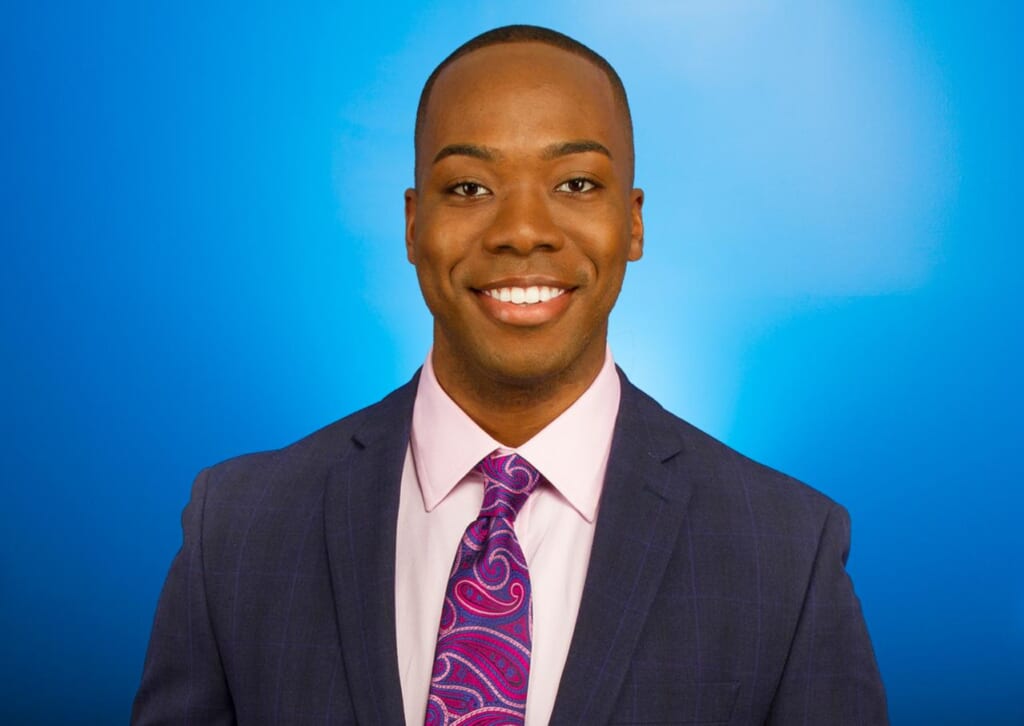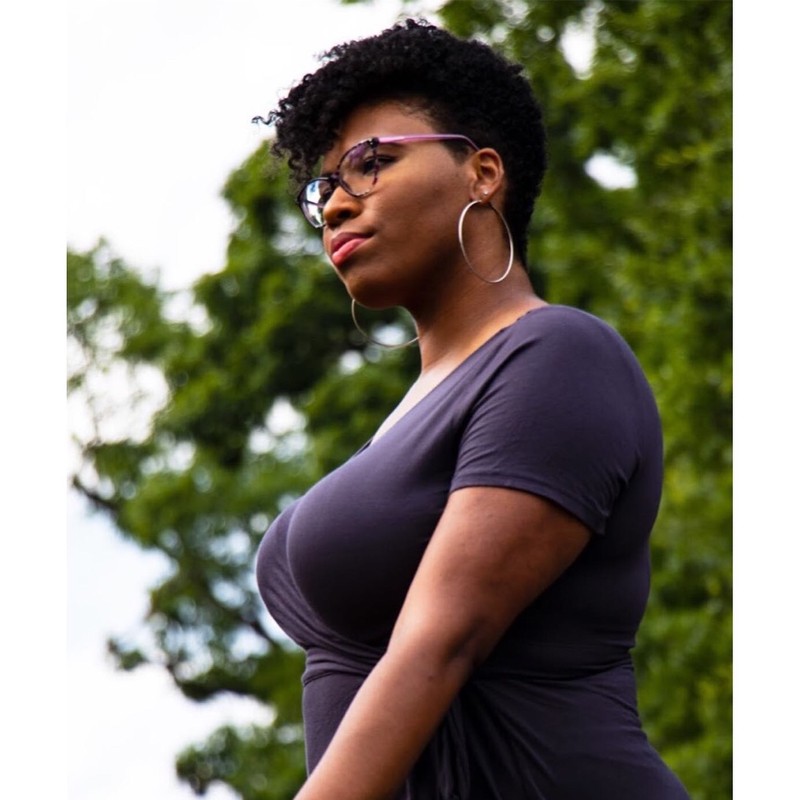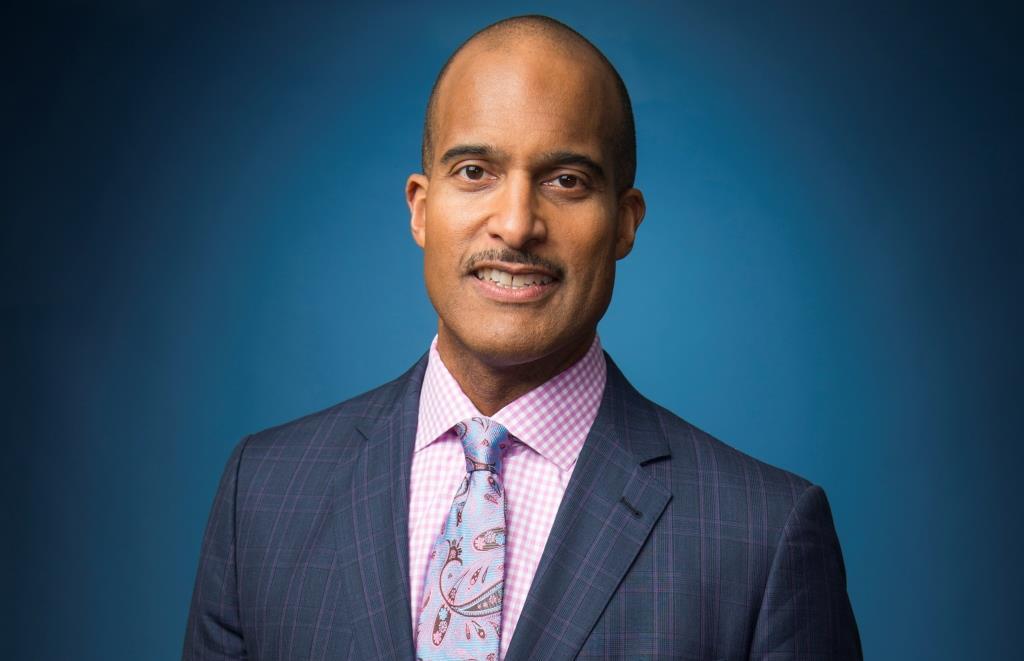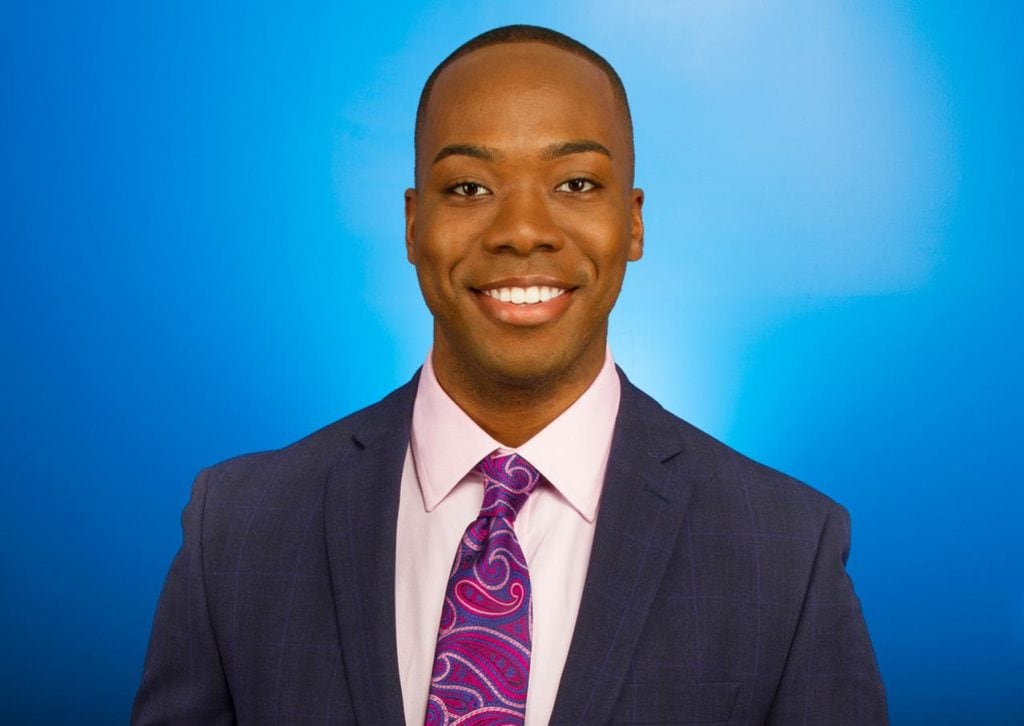Black meteorologists at The Weather Channel on breaking TV mold for a new generation
theGrio spoke to four meteorologists from The Weather Channel, which is Black-owned, who shared what it means to be Black in media and their thoughts on Black History Month
We are living in unprecedented times when it comes to weather and climate change, but luckily we have a growing number of Black meteorologists who can give us play-by-play on the ground.
For a long time, it was rare to see a Black person holding down a position in broadcast news, let alone meteorology. But Black-owned companies like The Weather Channel (which is owned by theGrio‘s parent company Entertainment Studios) are bridging the gap by featuring Black talent who are helping to shape the next generation of media.
theGrio spoke to four meteorologists from TWC who shared what it means to them to be Black in media and their thoughts on Black History Month.
Tevin Wooten

“I didn’t even know a Black meteorologist until I was 24,” said Tevin Wooten of Camden, Arkansas. The on-camera meteorologist joined the network in 2018. He described the town he grew up in as conservative and rural, so it made sense that all the meteorologists he knew were white. He credits Janice Huff of WNBC as the first Black meteorologist he met. “I’m great friends with her now,” he said.
As far as what Black History Month means to him, Wooten says the celebratory month-long event doesn’t get its proper recognition.
“We gloss over it because it’s a date on the calendar but it shouldn’t be limited to a month,” said Wooten. “Especially for Black people because it’s our history or as a country because it’s our true history.”
The Florida State University graduate said he looks forward to the day when two Black anchors can sit together on camera and no one blinks an eye, just as white people do.
“I hope we can get more representation, seeing two African Americans needs to be more normalized.” He persists that representation matters because “if you can see, you can be it.”
Read More: Oversimplifying Black history: What schools do wrong
Alex Wallace

Alex Wallace began his journey with TWC in 2006. Born in London, England but raised in Washington, D.C., Wallace said at about 12 years old a winter storm hit his town and inspired him to learn more about the weather. As a child, the now meteorologist began watching the network voraciously and says as an adult he still pinches himself because working at TWC is his dream job.
“For me, it’s a dream come true … it’s the pinnacle of weather for a meteorologist,” said the on-camera talent. “This is the one job I have ever had, I’ve had no other job.”
He says he grew up watching Al Rocker on TV but couldn’t help but notice not many of the other anchors looked like him, especially in meteorology.
“It helps to see representation, especially for kids because it gives them that battery,” said Wallace. “And then maybe they will think ‘hey maybe I can do that.’”
He adds that Black History Month is the time to tap into the achievements of Black people all over the world.
“It is the time of the year when people can focus in on Black contributions to the world, throughout the year that may go under the rug,” said Wallace. “It’s the time to say, ‘look what Black people have done,’ celebrate it and learn something new.”
Britney Hamilton

“Hurricane Katrina was the storm that made me interested in weather, I was in the 8th grade and I just wanted to know everything about hurricanes from that point on,” said Britney Hamilton, a producer at the network. “I actually started watching TWC at that time … I grew up watching Vivian Brown.”
Hamilton grew up in Charlotte, North Carolina and started at the network in 2020. She said working for a Black-owned company has been a breath of fresh air because it celebrates diversity.
Hamilton said prior to the TWC she worked in local news and being on camera as a Black woman in that space came with challenges — especially when it came to her hair. Hamilton said at other new stations it was encouraged that she wore her hair straightened, but she fought against it because she was proud to wear her natural hair on camera or have options to switch it up.
She said that when she speaks to children about her career they are surprised to see a meteorologist that looks like them, she tells them they don’t have to change who they are to be successful.
“You don’t have to alter what you look like or how you speak, you can be you.”
Read More: Erykah Badu talks Black history in new clip of ‘Forward: The Future of Black Music’
Paul Goodloe

Paul Goodloe is an on-camera meteorologist veteran and has been with the company for over two decades. Over the last 20 years, Goodloe has covered the most catastrophic weather conditions from Hurricane Katrina to Hurricane Harvey.
As one of the few tenured Black meteorologists in the country, he says it’s unfortunate that we still need a Black History Month.
“I think about some of the outrageous questions that are brought up like, ‘Why don’t we have a white history month? Black people built America and without this month Black people may not get the recognition we deserve,” he added.
Goodloe lamented that because Black people are instrumental components of America’s history our contributions should always be recognized.
“So now we have to celebrate our history separately because we aren’t woven into the mainstream history of America?”
Still, Goodloe is optimistic about our country’s future. “I do long for the day that it’s not Black History Month [and] it’s just American history.”
Have you subscribed to theGrio’s podcast “Dear Culture”? Download our newest episodes now!
TheGrio is now on Apple TV, Amazon Fire, and Roku. Download theGrio today!
The post Black meteorologists at The Weather Channel on breaking TV mold for a new generation appeared first on TheGrio.

